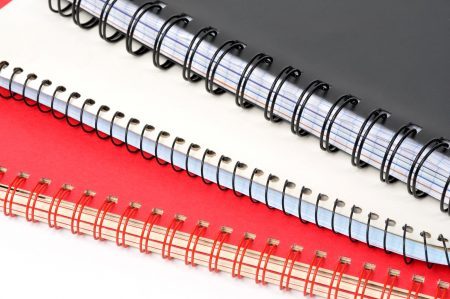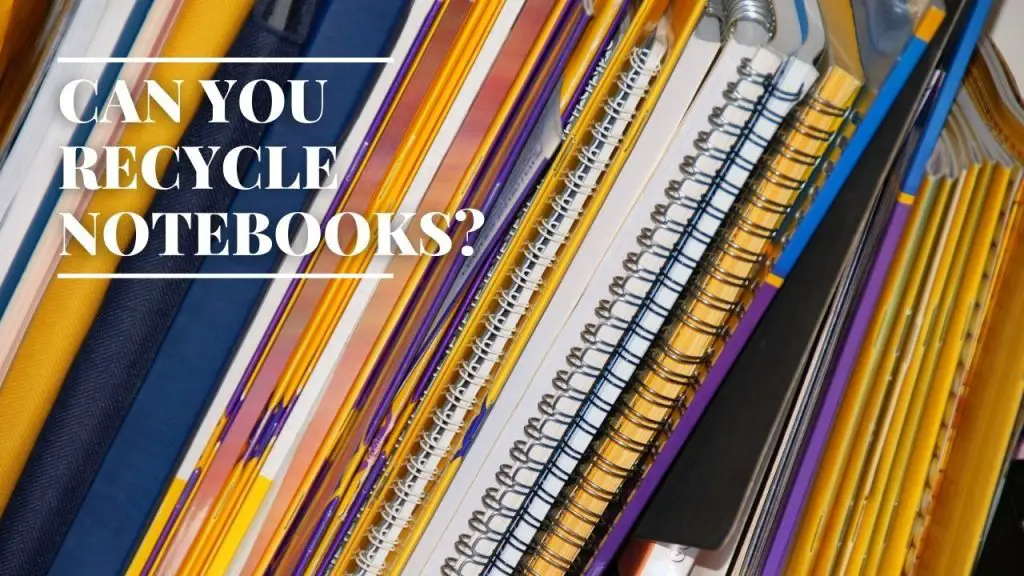Yes, notebooks can be recycled. However, the specific process for recycling them will depend on the materials they are made of and the recycling facilities available in your area.
Most notebooks are made from a combination of paper, cardboard, and plastic and can be recycled similarly to other paper products. Some notebooks may also contain metal elements such as spirals or staples, which can be separated and recycled separately.
To recycle a notebook, you can check with your local recycling facility to see if they accept notebooks and other paper products. Many facilities will have a separate bin or area designated for paper recycling. You can also check with your local solid waste management agency or a private recycling company to see if they offer recycling services for notebooks and other paper products.
In addition to recycling, there are other ways to reduce the environmental impact of notebooks, such as reusing them or choosing notebooks made from recycled materials.
Why Recycle Notebooks
There are several reasons why recycling notebooks are essential:
- Reducing waste: Recycling notebooks helps reduce the amount of waste in landfills. Landfills are designed to hold and contain waste, but they can become overwhelmed with too much waste and negatively impact the environment. By recycling notebooks, you can help to reduce the amount of waste that goes into landfills and help to preserve these natural resources.
- Conserving resources: Recycling notebooks can help to conserve natural resources such as trees, water, and energy. It takes fewer resources to produce paper products from recycled materials than it does to create them from raw materials. By recycling notebooks, you can help to reduce the demand for these resources and preserve them for future generations.
- Reducing pollution: The production of paper products can generate pollution in the form of water and air pollution and greenhouse gas emissions. Recycling notebooks can help reduce these types of pollution, as recycling generates fewer emissions and uses fewer natural resources than producing new paper products.
- Supporting the circular economy: The circular economy is a model in which resources are kept in use for as long as possible to reduce waste and minimize using raw materials. Recycling notebooks is an important part of the circular economy, as it helps to keep resources in use and reduces the demand for new products.
Recycling notebooks is a critical way to reduce waste, conserve resources, reduce pollution, and support the circular economy. Recycling your notebooks can help impact the environment positively and contribute to a more sustainable future.
How Many Trees Are Cut Down Each Year For Paper?
On average, around 4.1 million hectares of forest each year are cut down for use in paper goods. It takes about 24 trees to make one ton of paper.

Need a new notebook? These are the top 5 bestsellers on Amazon!
How to Recycle Notebooks
There are a few steps you can follow to recycle notebooks:
- Check with your local recycling facility: Contact your local recycling facility to see if they accept notebooks and other paper products. Many facilities will have a separate bin or area designated for paper recycling. You can also check with your local solid waste management agency or a private recycling company to see if they offer recycling services for notebooks and other paper products.
- Remove any non-paper elements: If your notebook has any metal elements, such as spirals or staples, remove them before recycling the notebook. These elements can be recycled separately, so it’s essential to separate them from the paper.
- Check for recycling symbols: Look for the recycling symbol on the notebook or its packaging. The symbol is usually a triangle with arrows inside, indicating that the product is recyclable.
- Collect and store your notebooks: Gather all of your notebooks and store them in a designated recycling bin or bag. If you have many notebooks, you may want to keep them in a box or a paper bag until you are ready to take them to the recycling facility.
- Transport your notebooks to the recycling facility: When you have collected enough notebooks to make the trip worthwhile, take them to your local recycling facility or drop them off at a designated recycling bin. If you are unable to transport the notebooks yourself, you may be able to find a recycling pickup service in your area that will come to your home or office to collect them.
By following these steps, you can recycle your notebooks and help to reduce waste, and preserve natural resources.
Finding a Local Recycling Center
Here are some steps you can follow to find a local recycling center:
- Check with your local solid waste management agency: Many cities and towns have a solid waste management agency that handles recycling and disposal services. You can check with your local agency to see if they have a recycling center or offer curbside recycling pickup.
- Search online: You can also search for recycling centers in your area. Several websites and directories can help you find local recycling facilities, including Earth911, RecycleNow, and The Recycling Partnership.
- Contact a private recycling company: If you cannot find a local recycling center or the options available do not meet your needs, you can also contact a private recycling company to see if they offer recycling services.
- Check with your local retailers: Many retailers, including big box stores, supermarkets, and office supply stores, offer recycling programs for certain products, such as plastic bags, batteries, and electronics. You can check with local retailers to see if they provide recycling services for notebooks or other paper products.
Can Notebook Binders Be Recycled?
Notebook binders can be recycled by breaking them down into their parts. Please remove the paper products and place them in your curbside recycling bin. The metal rings can be placed in the mixed metals bin at your recycling center. The plastic will need to go in the trash.
Repurposing Your Old Notebooks
There are several ways that you can repurpose your old notebooks rather than recycling them:
- Use them as sketchbooks: If you enjoy drawing or sketching, you can use old notebooks. You can also cut out individual pages and use them as loose sheets of paper.
- Use them as scrap paper: Old notebooks can also help jot down notes, lists, or ideas. You can keep a stack of scrap paper on your desk or in your bag to use whenever you need to write something down.
- Use them as journals: If you enjoy writing, you can use old notebooks as journals or diaries. You can also use them to record your thoughts, ideas, or experiences.
- Use them for crafts: Old notebooks can be great materials for craft projects. You can cut out individual pages and use them for collages or use the covers to make bookmarks or other decorative items.
- Donate them: If you no longer have a use for your old notebooks, you can consider donating them to a school, library, or other organization that could use them. This is a great way to give your notebooks a new life and help others in need.
By repurposing your old notebooks, you can extend their useful life and reduce the amount of waste that goes into landfills. There are many creative and practical ways to reuse notebooks, and finding a new use for them can be a fun and rewarding activity.
Conclusion
Notebooks are essential to many people’s daily lives and can be recycled when they are no longer needed. Recycling notebooks helps to reduce waste, conserve natural resources, reduce pollution, and support the circular economy.
You can take many steps to recycle notebooks, including checking with your local recycling facility, removing any non-paper elements, and transporting the notebooks to the recycling facility. In addition to recycling, there are other ways to reduce the environmental impact of notebooks, such as reusing them or choosing notebooks made from recycled materials. By taking steps to recycle your notebooks and other paper products, you can help to make a positive impact on the environment and contribute to a more sustainable future.






